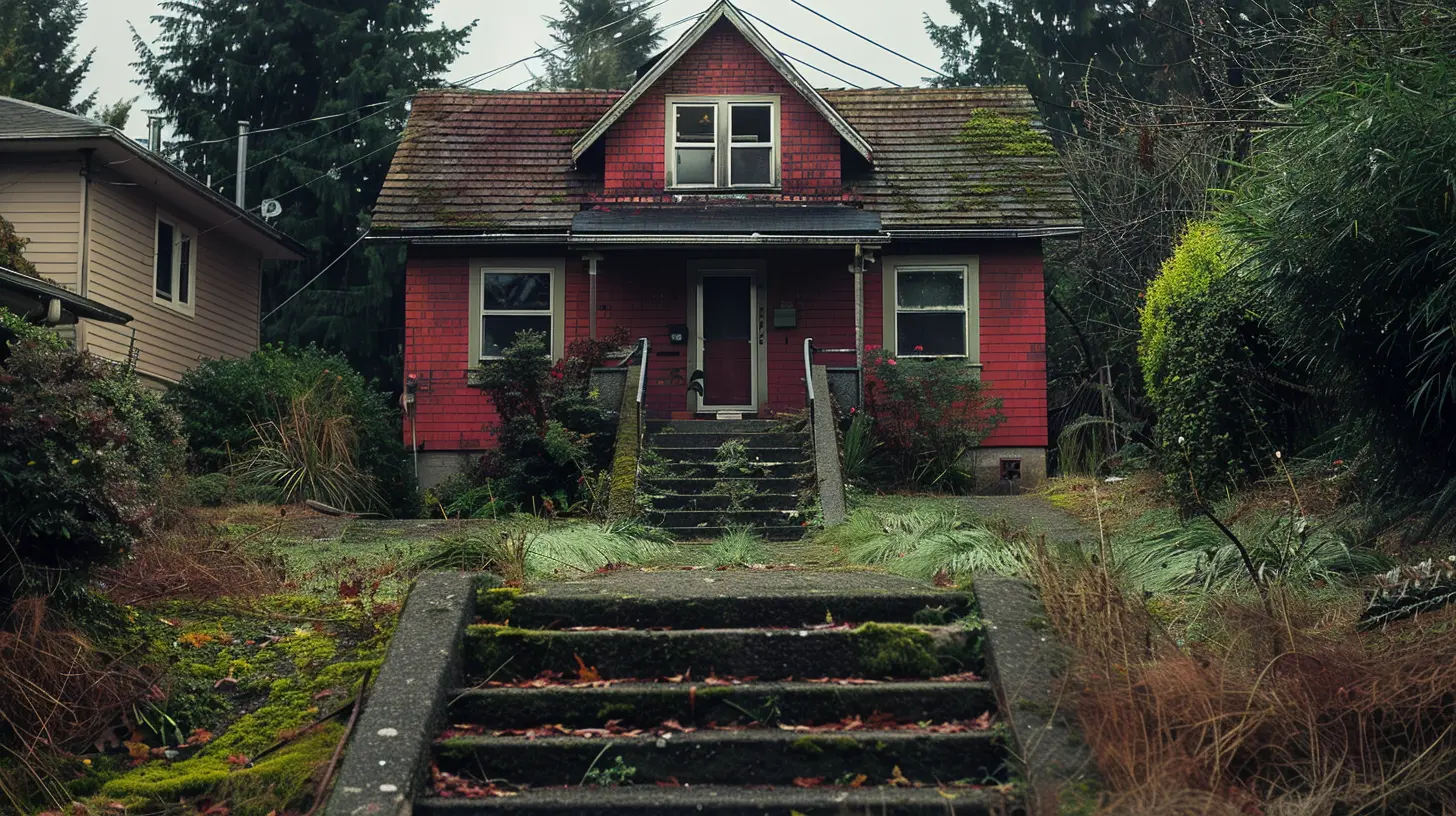Steps to Take Before Making an Offer on a Foreclosed Home
14 November 2025
Buying a foreclosed home can be an exciting opportunity to snag a property at a lower price. However, it’s not always smooth sailing. These homes often come with unique challenges, so doing your homework before making an offer is crucial. The last thing you want is to invest in a property that turns into a money pit.
To help you navigate the process, we’ve outlined the essential steps you should take before submitting an offer on a foreclosed home. Let’s dive in!

1. Understand What a Foreclosure Means
Before getting too deep, it's important to understand what foreclosure actually means. A foreclosed home is a property that has been repossessed by the lender due to the previous homeowner's inability to make mortgage payments.While this often means a lower price for buyers, it can also mean the home hasn’t been well-maintained. Some foreclosed properties are sold "as-is," meaning what you see is what you get—no repairs, no guarantees, and sometimes, no chance to negotiate terms.

2. Determine Your Financing Options
Are you planning to pay in cash, or do you need a mortgage? Financing a foreclosed home can be different from a traditional home purchase. Some banks may not approve loans for properties in poor condition.If you need financing, consider the following:
- Conventional Loans – Available for foreclosed homes in decent condition.
- FHA 203(k) Loans – Ideal if the home needs repairs; this type of loan includes renovation costs.
- Hard Money Loans – Short-term financing from private lenders, but often with higher interest rates.
It’s a good idea to get pre-approved before house-hunting to ensure you’re financially ready when the right property comes along.

3. Hire a Real Estate Agent Who Specializes in Foreclosures
Not all real estate agents are created equal. You’ll want someone who understands the foreclosure process, knows how to negotiate with banks, and can guide you through potential pitfalls.A knowledgeable agent can:
- Help you find foreclosed homes that fit your budget
- Navigate the often-complex paperwork
- Point out potential red flags before you commit
Since buying a foreclosure can be tricky, having an expert in your corner can make all the difference.

4. Research the Market and Property Values
Before making an offer, take some time to research comparable properties in the area. Look at recent sales to determine if the foreclosed home's price is truly a bargain or if it's priced higher than it should be.Some key factors to consider:
- The average price of similar homes in the neighborhood
- The condition of other homes in the area
- Potential appreciation or depreciation
You don’t want to jump into a deal just because the price looks low on paper. Make sure you’re actually getting a good investment.
5. Check for Outstanding Liens or Back Taxes
Most foreclosed homes are sold free and clear of liens, but not always. Some properties may have unpaid property taxes, HOA fees, or other debts attached to them.To avoid any financial surprises, do a title search before making an offer. This will reveal any outstanding debts or claims against the property. If there are unpaid liens, you'll either have to negotiate with the seller or take on the responsibility yourself.
6. Get a Home Inspection
Foreclosed homes are typically sold "as-is," meaning the bank won’t make repairs before you move in. That’s why a home inspection is a must!A certified home inspector can uncover major issues such as:
- Structural damage
- Plumbing or electrical problems
- Roof leaks
- Mold or pest infestations
Even though the seller may not fix these problems, knowing what you're dealing with can help you make a more informed decision—or back out before it’s too late.
7. Estimate Repair Costs
After the home inspection, you should have a better idea of what repairs are needed. Some foreclosed properties require only minor cosmetic updates, while others may need a complete overhaul.If repairs are extensive, get quotes from contractors so you can estimate costs. Factor these expenses into your budget to determine if the purchase is still worth it.
A home that seems like a good deal at first can quickly turn into a money pit if the cost of repairs outweighs the savings.
8. Check Utility Status and Property Condition
Many foreclosed homes sit vacant for months—or even years. During this time, utilities may have been shut off, pipes may have burst, or squatters may have damaged the property.Before finalizing your offer, check if utilities are still connected and inspect the home’s overall condition. If the house has been sitting in disrepair, you may need to spend extra money getting it back in shape.
9. Understand the Bank’s Selling Process
Buying a bank-owned property is different from purchasing a home from an individual seller. Banks can be slow to respond, and negotiations may take longer than you expect.Here’s what you should know:
- Banks rarely accept lowball offers, so price your bid competitively.
- They may require additional paperwork and longer closing timelines.
- Some banks sell properties through auctions, while others list them traditionally.
Knowing how the lender handles foreclosure sales can help you plan your approach and avoid unnecessary delays.
10. Be Prepared for a Lengthy Closing Process
Foreclosed home transactions don’t always move quickly. Banks have their own processes, and closing can take longer than a traditional home sale.Potential delays include:
- Extra paperwork required by the lender
- Title issues that need resolving
- Repair negotiations (if applicable)
If you’re in a hurry to move in, make sure you're comfortable with the possibility of delays before making an offer.
11. Don’t Skip Homeowners Insurance
Before closing, you’ll need to secure homeowners insurance. Since some foreclosed homes are in poor condition, finding coverage may be tricky.Many insurers hesitate to cover homes with existing damage or outdated electrical and plumbing systems. In some cases, you may need a high-risk insurance policy, which can be more expensive.
It’s best to get quotes early so you’re not scrambling at the last minute to find coverage.
12. Consider an Attorney for Legal Guidance
If you’re dealing with a complicated foreclosure sale—especially one involving legal issues or unpaid liens—it may be worth hiring a real estate attorney.An attorney can:
- Review contracts for hidden clauses
- Handle title searches to check for outstanding debts
- Advise you on potential legal risks
Spending a little extra on legal help now could save you from major headaches in the future.
Final Thoughts
Buying a foreclosed home can be a fantastic way to score a great deal, but it’s not without risks. Taking the right steps before making an offer—like researching the market, hiring an expert, and understanding potential pitfalls—can set you up for a smoother home-buying experience.At the end of the day, the key is due diligence. The more homework you do upfront, the less likely you are to face surprises down the road.
Are you ready to dive into the foreclosure market? With the right preparation, you could land a home at a price that makes sense for your budget and future plans. Happy house hunting!
all images in this post were generated using AI tools
Category:
ForeclosuresAuthor:

Travis Lozano
Discussion
rate this article
1 comments
Calder Benson
What hidden gems could we uncover in foreclosures? Exciting possibilities!
November 16, 2025 at 2:01 PM

Travis Lozano
Absolutely! Hidden gems in foreclosures can include properties with unique architecture, prime locations at lower prices, or homes needing minor repairs that can significantly increase value. Just be sure to conduct thorough inspections and research beforehand!


